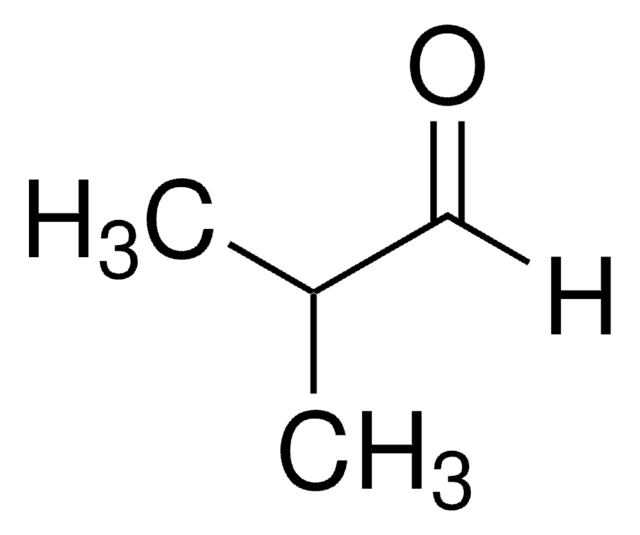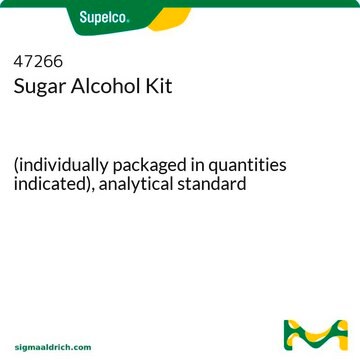W222216
Isobutyric acid
natural, ≥99%, FCC, FG
Synonym(s):
2-Methylpropionic acid
About This Item
Recommended Products
grade
FG
Fragrance grade
Kosher
natural
Quality Level
Agency
follows IFRA guidelines
meets purity specifications of JECFA
reg. compliance
EU Regulation 1223/2009
EU Regulation 1334/2008 & 178/2002
FCC
FDA 21 CFR 117
FDA 21 CFR 172.515
vapor density
3.04 (vs air)
vapor pressure
1.5 mmHg ( 20 °C)
Assay
≥99%
autoignition temp.
824 °F
expl. lim.
10 %
refractive index
n20/D 1.393 (lit.)
bp
153-154 °C (lit.)
mp
−47 °C (lit.)
density
0.95 g/mL at 25 °C (lit.)
application(s)
flavors and fragrances
Documentation
see Safety & Documentation for available documents
food allergen
no known allergens
fragrance allergen
no known allergens
Organoleptic
butter; acidic; rancid
SMILES string
CC(C)C(O)=O
InChI
1S/C4H8O2/c1-3(2)4(5)6/h3H,1-2H3,(H,5,6)
InChI key
KQNPFQTWMSNSAP-UHFFFAOYSA-N
Looking for similar products? Visit Product Comparison Guide
Related Categories
Other Notes
Signal Word
Danger
Hazard Statements
Precautionary Statements
Hazard Classifications
Acute Tox. 3 Dermal - Acute Tox. 4 Oral - Eye Dam. 1 - Flam. Liq. 3 - Skin Corr. 1B
Storage Class Code
3 - Flammable liquids
WGK
WGK 1
Flash Point(F)
131.0 °F - closed cup
Flash Point(C)
55 °C - closed cup
Personal Protective Equipment
Choose from one of the most recent versions:
Already Own This Product?
Find documentation for the products that you have recently purchased in the Document Library.
Customers Also Viewed
Our team of scientists has experience in all areas of research including Life Science, Material Science, Chemical Synthesis, Chromatography, Analytical and many others.
Contact Technical Service











